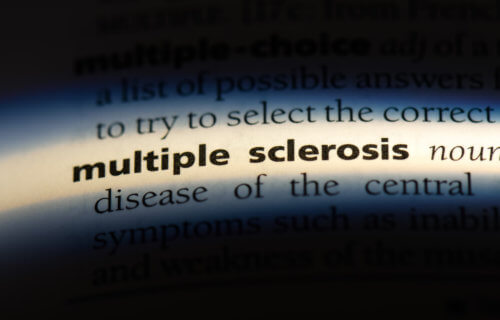MINNEAPOLIS — A new drug could help delay the symptoms of multiple sclerosis in those showing early signs of the condition. Scientists say teriflunomide could be a breakthrough treatment for those displaying early signs of MS during MRI scans, even if they’re not suffering from symptoms of the autoimmune disease.
Researchers, presenting their findings at the American Academy of Neurology’s 75th Annual Meeting, tested the new drug on patients with lesions indicative of “radiologically isolated syndrome” which are similar to those seen in among patients with MS. The team found that those who took the new drug were over 70 percent less likely of developing MS symptoms than those taking a placebo.
Though scientists say that further research is necessary, the study suggests that early intervention with teriflunomide could decrease the risk of neurological damage and debilitating symptoms.
Why is multiple sclerosis so debilitating?
MS is a chronic autoimmune disease that affects the central nervous system (CNS), which includes the brain, spinal cord, and optic nerves. In MS, the immune system attacks the myelin sheath, a protective covering that surrounds nerve fibers, causing inflammation and damage to the myelin and the nerve fibers themselves.
The symptoms of MS can vary widely depending on the location and extent of the damage to the CNS. Common symptoms include fatigue, muscle weakness and stiffness, difficulty with coordination and balance, vision problems, and cognitive impairment. MS can also cause bowel and bladder problems, sexual dysfunction, and depression.
The cause of MS is not fully understood, but it is thought to be a combination of genetic and environmental factors. There is currently no cure for MS, but there are a number of treatments available that can help to manage symptoms and slow the progression of the disease. These include medications to reduce inflammation, physical therapy to improve mobility and strength, and cognitive therapy to address memory and thinking problems.

The new preliminary study focused on people displaying signs of a condition called radiologically isolated syndrome in MRI scans. This condition is diagnosed in people who have no symptoms of MS, but who have abnormalities in the brain or spinal cord called lesions, which are similar to those seen in MS patients. The study involved 89 participants with radiologically isolated syndrome, who were observed for up to two years.
Half of them received 14 milligrams of teriflunomide each day, while the other half took a placebo. During the study, just eight of the participants who took teriflunomide developed symptoms of MS, compared to 20 from the group which took the placebo.
Early treatment is the best medicine for MS
After adjusting for other factors which could have an effect on the risk of developing symptoms of MS, the research team concluded that the participants who took the drug had a 72-percent lower risk of experiencing first symptoms than those in the placebo group.
“With more and more people having brain scans for various reasons, such as headache or head trauma, more of these cases are being discovered, and many of these people go on to develop MS,” says study author Christine Lebrun Frenay, MD, of the University Hospital of Nice in France and a Fellow of the American Academy of Neurology, in a media release. “The sooner a person can be treated for MS, the greater the chances of delaying damage to the myelin, which decreases the risk of permanent neurologic impairment and debilitating symptoms.”
“Our findings suggest that early intervention with teriflunomide may be beneficial to those diagnosed with radiologically isolated syndrome, the presymptomatic phase of MS,” Lebrun Frenay continues. “However, more research is needed in larger groups of people to confirm our findings. Additionally, it is important that medical professionals are cautious when using MRI expertise to diagnose this condition, selecting only patients at risk of developing MS and not increasing MRI misdiagnoses.”
The study was supported by Sanofi, the company that makes teriflunomide.
South West News Service writer James Gamble contributed to this report.

